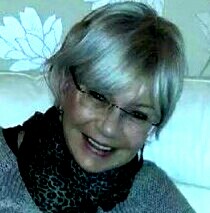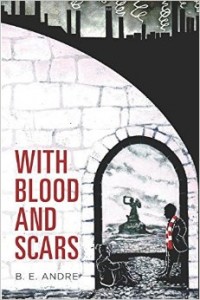Authenticity in Novels
 At some point in the 1980s I came across Almonds and Raisins, a family saga by Maisie Mosco. Two things drew me to Maisie’s work: it described the Jewish immigrant experience in the first half of the 20th century, and it was set in my home town, Manchester. Maisie, who was born in Oldham in 1924, the child of Latvian and Viennese Jewish parents, knew what she was writing about; her novels were authentic.
At some point in the 1980s I came across Almonds and Raisins, a family saga by Maisie Mosco. Two things drew me to Maisie’s work: it described the Jewish immigrant experience in the first half of the 20th century, and it was set in my home town, Manchester. Maisie, who was born in Oldham in 1924, the child of Latvian and Viennese Jewish parents, knew what she was writing about; her novels were authentic.
This authenticity is also apparent in the work of Andrea Levy, Zadie Smith, Monica Ali, Meera Syal and Marina Lewycka. How well they capture the joys and sorrows of their respective communities and show how their heritage has impacted on their British life. They all admit to autobiographical elements in their debut novels and have continued to explore the idea of ‘other’ in later writing. For me, otherness, identity and the ambiguity of life in two languages and cultures have always been compelling subjects. A child of immigrants is rarely confined to one side of any story, and that’s a gift.
Several people have asked me whether my novel With Blood and Scars is autobiographical. The locations are real, and the histories of Witek, Wanda, Granny and Grandad are those of countless Poles who found themselves dislocated by war. Reader reviews indicate that the peculiarities of the Walewski story were enacted in one way or another worldwide in the post-war Polish diaspora.
Initially, when I planned to submit part of With Blood and Scars as an MA dissertation, I tried to interweave the plot with as many of those traumatic journeys to freedom as possible. In the first draft only the first and last chapters were set in the present. My father, a hobby historian with an extensive library, was a key player in providing me with material for the past. Apart from his books, he also gave me information from the 1960s – photographs, leaflets, newspaper articles that he’d squirrelled away.
On the day I handed in the dissertation, my father suffered renal failure. For three months he was in and out of hospital having tests that finally led to a diagnosis of cancer. Three weeks later he died. It was a “good death” inasmuch as any death can be good. When I returned to work after his funeral, people lowered their voices, asked me how I was feeling, shared their stories of losing a parent. Meanwhile, to my surprise, I was matter-of-fact about it. I’m a middle-aged woman – I’d had a lot of time to prepare mentally for the loss of parents. I was fine.
 Life gradually returned to normal, but With Blood and Scars languished, untouched. I no longer had the stomach for it. Approximately six months later I recognised an unease, an inability to pull apart the tangled strands of my thoughts. Something was wrong with me and I couldn’t figure out what. Was it to do with work, relationships, my children? I booked six counselling sessions. I imagined I’d grub around in my psyche for a while, find the problem, come up with the solution, move on. That’s what I do. In the event, the first session was all about my father. So was the second. And so was the third and so on. The stages of the mourning process are clearly not the same for everyone – sometimes the first one hits you out of the blue.
Life gradually returned to normal, but With Blood and Scars languished, untouched. I no longer had the stomach for it. Approximately six months later I recognised an unease, an inability to pull apart the tangled strands of my thoughts. Something was wrong with me and I couldn’t figure out what. Was it to do with work, relationships, my children? I booked six counselling sessions. I imagined I’d grub around in my psyche for a while, find the problem, come up with the solution, move on. That’s what I do. In the event, the first session was all about my father. So was the second. And so was the third and so on. The stages of the mourning process are clearly not the same for everyone – sometimes the first one hits you out of the blue.
I needed to finish the book, in fact, rewrite it, to arrive at the end of the grieving cycle. After all, he’d wanted me to write it. I also had a duty to the original historical concept, but the structure of the novel was all wrong, and the plot had changed to incorporate something that wasn’t present before; the death of a father. In a 2015 interview for Radio 4’s Book Club, whilst talking about A Short History of Tractors in Ukrainian, Marina Lewycka said, “…and you survive the awfulness and through humour.” Maybe I did that, too. So yes, that side of the narrative can be said to be autobiographical, and I shed many tears in the writing of those sections. The rest, I hope, is simply authentic.
All of it could have happened. Much of it probably did – to someone else.
—
B.E. Andre was born in Manchester, England, the child of Polish post-war refugee parents. She was educated at Stretford Grammar and Loreto College, read French, German and Swedish at U. C. W. Aberystwyth, and then completed further post-graduate studies in Manchester. This was eventually followed by an M. A. in Critical and Creative Writing at the University of Winchester, United Kingdom. She worked for Reuters News Agency in London where she specialized in the oil market.
She is the proud mother of three grown-up sons who left home when they were supposed to. She lives in Northwich, Cheshire. Among her many interests is the study of wood cabins and garden sheds, and she is on permanent look-out for the ideal writer’s retreat in the Mazury region of Poland.
With Blood and Scars is her debut novel. Buy it HERE
Follow her on twitter and Facebook
Category: On Writing
























